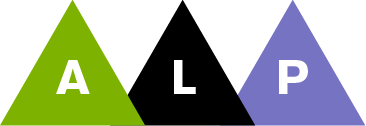The Accelerated Learning Program (ALP) is a co-requisite approach to developmental writing that has produced success rates for developmental writers that are double those of more traditional approaches. Because of the high success rates, the cost per successful student is actually lower than in traditional models with larger class sizes.
ALP has been adopted by more than 148 colleges and universities across the country. As we have worked with various schools, multi-campus systems, and state-wide organizations, we have developed five different formats for consultations, although these can be modified, combined, or tailored to specific contexts.
Formats for Consultation
[wptabs style=”trontastic” mode=”horizontal”]
[wptabtitle] Building Support[/wptabtitle] [wptabcontent]
Audience: Suitable for large audiences who are not very familiar with ALP. For example, state-wide gatherings of English faculty, of CAOs, or of a group that will design and implement redesign.
Purpose: To present a description and supporting data to explain why they might consider adopting a co-requisite model.
Content: The presentation usually covers the following:
- the problem of low success rates in developmental courses
- description of ALP
- description of other co-req models
- data demonstrating ALP’s effectiveness
- explanation of how, despite its small class size, ALP is less expensive per successful student than traditional models Format: A PowerPoint presentation with questions and answers as time permits.
Time: From one hour to four hours depending on the level of detail and the amount of interaction desired.[/wptabcontent]
[wptabtitle] Planning for Adoption and Scaling Up[/wptabtitle] [wptabcontent]
Audience: Suitable for teams designing an implementation of ALP. Department heads, mid-level administrators, state-wide redesign teams, and the like.
Purpose: To assist the group in thinking through the process of adopting ALP and to raise questions that need to be answered before implementation begins.
Content: The presentation usually covers the following:
- developing a timetable
- adapting ALP to local conditions
- coordinating with other college agencies such as counselors, records and registration, and IT.
- planning faculty development
- developing a data plan
- planning for scaling up
Format: Small group discussion.
Time: A short one- or two-hour discussion can get the group thinking and aware of the issues they will need to address. A longer session—half to whole day—can begin the process of developing a plan in some detail.[/wptabcontent]
[wptabtitle] Faculty Development[/wptabtitle] [wptabcontent]
Audience: Suitable for faculty who will be teaching ALP. Could be all the writing faculty from one or more schools or could be a cohort of faculty from a range of schools, even from across the state, who will later conduct faculty development for other faculty. Works best with fewer than 40 participants.
Purpose: To provide an opportunity for faculty to think about and discuss how teaching in an ALP class is different from teaching in more traditional settings.
Content: The presentation usually covers the following:
- getting acquainted and intro to ALP
- backward design curriculum development
- active learning in a writing classroom
- integrating reading with writing
- thinking skills in the writing classroom
- addressing non-cognitive issues
- improving students ability to edit their own writing
- aligning the syllabi for the developmental and the comp classes
- selecting texts and readings
- grading
Format: Small group discussion. Demonstration. Lots of sample materials distributed.
Time: Minimum of one day, but two or three days ideally. [/wptabcontent]
[wptabtitle] Planning for Scaling Up[/wptabtitle] [wptabcontent]
Audience: Appropriate for teams that will actually be responsible for overseeing ALP.
Purpose: To insure that, early in the process, those responsible are thinking about scaling the program up.
Content: The consultation usually covers the following:
- what is the final goal
- establishing a timeline for scaling up
- anticipating difficulties
- faculty resistance
- classroom space o recruiting faculty
- faculty development
- articulation with other schools
Format: Small group discussion.
Time: A short one- or two-hour discussion can get the group thinking and aware of the issues they will need to address. A longer session—half to whole day—can begin the process of developing a plan in some detail.[/wptabcontent]
[wptabtitle] Train the Trainers[/wptabtitle] [wptabcontent]
Audience: Faculty who have completed the faculty development sessions and who will be responsible for training other faculty to teach in an ALP context.
Purpose: To develop a cadre of local faculty who can continue to provide faculty development as the program is scaled up.
Content: After a review of the topics we cover in the faculty development sessions, these sessions are devoted to a discussion of how to organize and conduct faculty development for future faculty. Participants will receive electronic copies of handouts and PowerPoints, which they can adapt for sessions they will conduct.
Format: Small group discussion.
Time: One-two days[/wptabcontent]
[/wptabs]

Possible Combinations
We are happy to combine these various consultations in any way that makes sense for your institution. Below are several examples of how such combinations might be structured.
A one-day visit during which we hold a support building session for a large audience—everyone who might need to know about ALP if it is adopted. Later in the day, small group meetings with key administrators and with person or persons who will actually be responsible for implementing a pilot of ALP.
A two-day visit to do faculty development with the faculty who will be teaching the first sections of ALP.
A three-day visit, during which we conduct another two-day faculty development for a larger group of faculty who will be teaching ALP as the program is scaled up. Followed by a one-day “train-the-trainer” workshop in which we work with those who will be conducting the faculty development as the program is scaled up.
First, a one-day visit for a state-wide summit at which we present an overview of ALP. Followed by small group meetings with representatives from interested colleges to plan for further meetings and to answer questions.
Next, a two-day visit at which we provide faculty development for those faculty who will offer the first pilot sections of ALP at colleges interested in participating in the pilot stage. Followed by a meeting of coordinators from each participating college to plan scaling up ALP.
Later, a two-day visit at which we provide faculty development for a larger group of faculty from the original group of colleges and from any that have decided to join the project.
Finally, a one-day “train-the-trainer” workshop for at least one faculty member from each participating college. These faculty will continue the faculty development as the program grows.
Pricing
1 day, one consultant $1,500
1 day, two consultants $2,500
2 days, one consultant $3,000
2 days, two consultants $4,000
3 days, one consultant $4,500
3 days, two consultants $5,500
We are happy to schedule as much activity into a day, including evenings, as you would like.
We will bill for travel expenses in addition to the above stipends.
For further information or to schedule a consultation
Elsbeth Mantler, Co-Director emantler@ccbcmd.edu or
Haleh Azimi, Co-Director hazimi@ccbcmd.edu
